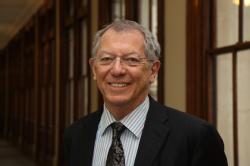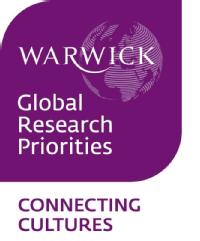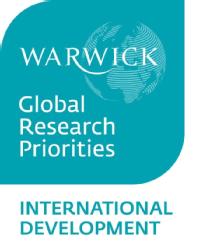Sustainable Futures: Survival of the City
Our Venice event was held Friday 23rd – Saturday 24th October 2015 at Palazzo Pesaro-Papafava . This event was led by the Connecting Cultures GRP in collaboration with the International Development GRP.
The Venice event’s theme was Sustainable Futures: Survival of the City. Research from across a variety of fields, from the Arts to the Sciences and the Social Sciences has much to tell us about our understanding of urban spaces, their history, and their impact on the environment as well as on how we imagine and build the cities of the future. Participants in the symposium were invited to talk about how culture, language and technology affect the material and human ecology of past, present and future cities.
Warwick has a very strong internationalization agenda that builds upon the distinctive qualities that make Warwick a pioneer in the field of global education and our presence in Europe, and indeed in Venice in particular, is a key component of that agenda. The University has had a presence in Venice for over forty years, and our Venice courses for undergraduates and postgraduates remain unique among UK institutions. The Warwick in Venice programme has its base at the Palazzo Pesaro-Papafava and is an ideal location for our 50th anniversary event.
There were two streams of activity held over the two days. An Academic Symposium which brought together experts in a range of fields, ranging from the Humanities, to the Sciences and Social Science, to discuss the history of the city and the challenges which face today’s urban spaces and an exciting series of events for Warwick Alumni. Drawing both of these programmes together was a Vice-Chancellor's Distinguished Lecture delivered by the UK Foreign Secretary’s Special Representative for Climate Change Sir David King.
Academic Symposium Programme & Registration
This event focussed on two sub-themes, ‘Translation in the City’ and ‘Material and Cultural Economies’. These sub-themes sought to draw together the University’s expertise in these areas to produce an interesting and stimulating set of talks and discussions. The programme of events included a Keynote talk from renowned expert in Science Policy Professor Alexandre Quintanilha.
Friday 23 October 2015 |
|
| Theme: Material and Cultural Economies (Chair: Prof. Ann Caesar) |
|
| 14.00-14.30 | Registration and Welcome |
| 14.30-15.00 |
|
| 15.00-15.30 | |
| 15.30-16.00 | Break |
| 16.00-16.30 | |
|
16.30-17.00
|
|
|
17.00-17.30
|
Break
|
|
17.30-18.30
|
|
| 18.30-19.30 | Networking event |
Saturday 24 October 2015 |
|
| Theme: Translation in the City (Chair: Prof Alison Ribeiro de Menzes) |
|
| 09.00-09.30 | Registration and Welcome |
| 09.30-10.00 | High Tide, High Time: Alfredo Jaar’s 2013 Biennale Installation Venezia, Venezia Dr Nicolas Whybrow |
| 10.00-10.30 | The Merchant in Venice, Shylock in the Ghetto Associate Professor Shaul Bassi |
| 10.30-11.00 | Break |
| 11.00-11.30 | Landscapes After The Battle, Life Stories on the Edge: Entanglements of Memory and Crisis in Contemporary Spain Professor Alison Ribeiro de Menezes |
| 11.30-12.00 | |
| 12.00-14.00 |
Keynote Lecture
|
Vice-Chancellor's Distinguished Lecture - Professor Sir David King
Saturday 24 October 2015 |
|
| 18.00-18.30 | Registration and Welcome |
| 18.30-19.30 |
Distinguished Lecture
|
 Professor Sir David King was appointed as the UK Foreign Secretary’s Special Representative for Climate Change (full-time) in September 2013. Sir David was previously the Government’s Chief Scientific Advisor from 2000 – 2007, working with Prime Ministers Blair and Brown, during which time he raised awareness of the need for governments to act on climate change and was instrumental in creating the Energy Technologies Institute. He also served as the Founding Director of the Smith School of Enterprise and Environment at Oxford, 2008 – 2012. Some of his other appointments include the Chair of Future Cities Catapult, Chancellor of the University of Liverpool, Senior Scientific Advisor to UBS, and Adviser to President Kagame of Rwanda.
Professor Sir David King was appointed as the UK Foreign Secretary’s Special Representative for Climate Change (full-time) in September 2013. Sir David was previously the Government’s Chief Scientific Advisor from 2000 – 2007, working with Prime Ministers Blair and Brown, during which time he raised awareness of the need for governments to act on climate change and was instrumental in creating the Energy Technologies Institute. He also served as the Founding Director of the Smith School of Enterprise and Environment at Oxford, 2008 – 2012. Some of his other appointments include the Chair of Future Cities Catapult, Chancellor of the University of Liverpool, Senior Scientific Advisor to UBS, and Adviser to President Kagame of Rwanda.
He was born in Durban, South Africa, educated at St John’s College Johannesburg and at Witwatersrand University, and graduated with an Honours degree in Chemistry, 1960, and a PhD, 1963.
He is a physical chemist working in surface science and catalysis. He was the Brunner Professor of Physical Chemistry, University of Liverpool, 1974 – 1987, and subsequently the 1920 Professor of Physical Chemistry at Cambridge University, 1987 – 2000, Head of the Department of Chemistry, 1993-2000, and Master of Downing College at Cambridge, 1995 -2000. He has published over 500 papers on surface science and heterogeneous catalysis, and on science and policy, for which he has received many awards, medals etc. including: the Rumford Medal of The Royal Society, 2002; the Linnaeus Medal, Sweden, 2007; the Jawaharlal Nehru Birth Centenary Medal, Indian National Science Academy, 2007; the Arthur W. Adamson Award, the ACS, 2009; and the Symons Medal, Association of Commonwealth Universities, 2013. He has received 23 Honorary Degrees from universities around the world.
Elected Fellow of the Royal Society in 1991; Foreign Fellow of the American Academy of Arts and Sciences in 2002; knighted in 2003; and made “Officier dans l’ordre national de la Légion d’Honeur” in 2009.
Alumni Events Programme
In parallel to the symposium, we also organised a programme of events specifically designed for Warwick alumni including guided tours of the city, led by Warwick staff and an opportunity to meet Warwick students and academics at the Palazzo.


